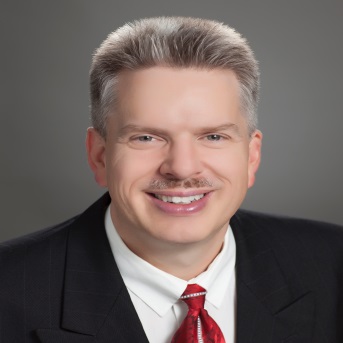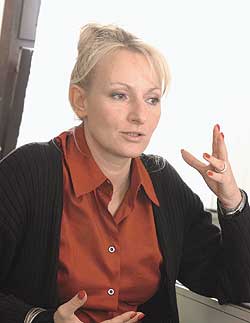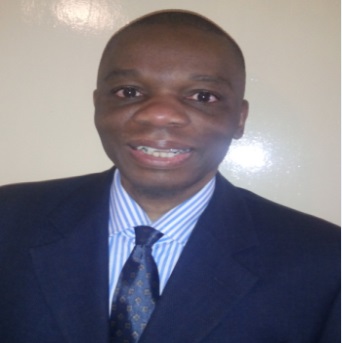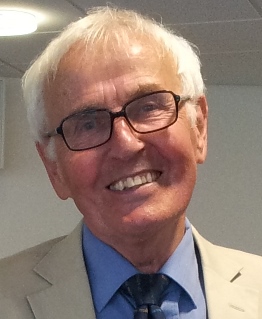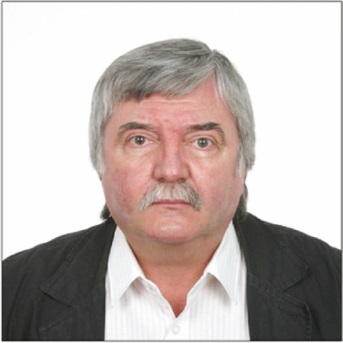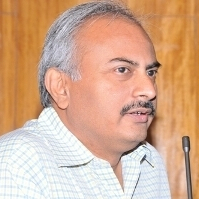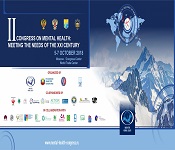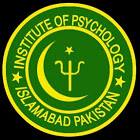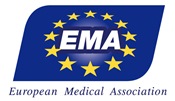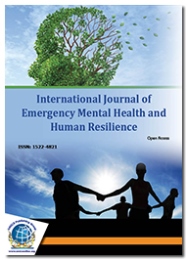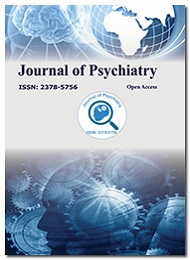Theme: Innovating combats towards Depression and Psychiatry
Bipolar Disorder 2018
- About Conference
- Sessions/Tracks
- Market Analysis
- New Updates Bipolar and Psychiatry
- Past Conference Report
On behalf of Organizing Committee we invite all the participants from all part of the world to attend the Bipolar conference 2018 entitled “Bipolar Disorder: Depression and Psychiatry” scheduled during November 05-06, 2018 at Abu Dhabi, UAE.
Bipolar conference 2018 is the leading conference dedicated to Psychiatrists and Psychological researchers with the theme “Innovating combats towards Depression and Psychiatry”
Goal of Bipolar 2018 is to deliver an outstanding program for exchange of ideas and authoritative views by leading scientists which covers the entire spectrum of research in Psychiatry and Mental Health and share the cross-cultural experiences of various treatment procedures.
Many studies over the years, including reports from presidential commissions, surgeons general the Council of Graduate Medical Education, and the Institute of Medicine, attest to the dire shortage of psychiatrists relative to the almost 68% of our nation's sufferers who are deemed in need of care.
Projections from the studies mentioned above estimate a need for 30,000 by psychiatrists by 2018 but currently there are about 7000. Resulting in part from recent efforts by the American Academy of Psychiatry we will see a modest 30% increase in the number of medical students and general psychiatry residents choosing psychiatry as a career.
Why to attend?
We strive to make Bipolar 2018 a success, with your support and high-quality talks from both Psychiatrists as well as Psychological committees. During the conference, we assure you that you will experience world class facilities and hospitality at the conference.
Bipolar Disorder: Depression and Psychiatry is a unique forum to bring together worldwide distinguished academics in the field of Psychology and Psychiatry, Psychiatry researchers, public health professionals, scientists, academic scientists, industry researchers, scholars to exchange about state of the art research and technologies. The Conference will feature many exciting academic programs including multiple panels, workshops, affinity group lunches, paper presentations, and scientific sessions by reputed psychiatrists, Mental illness Societies from all over the country.
Target Audience:
- Psychiatrists
- Physicians
- Psychologists
- Neuropsychiatrist
- Specialists
- Researchers
- Healthcare professionals
- Professors
- Nutritional Scientists
- Industrial Experts
- Mental health Nurses
- Lecturers and Students from Academia
- Students from Academia in the research of Psychology
Target Audience:
Industry 20%
Academia 50%
Clinicians 20%
Others 10%
Track 1: Bipolar Disorder
Bipolar disorder also known as maniac depression causes elevated levels of mood and sometimes leads to symptoms of psychosis. It even causes depression that may affect the person’s personal as well as professional life thus causing a disaster. The reasons for this disorder are generally not known but environmental and genetic factors do play a vital role. The environmental factors can be a history of childhood abuse and prone to depression. However genetic factors also have a role in bipolar disorder but in a very few cases. The elevated levels of mood are generally characterized as mania or hypomania. The symptoms of mania can be as follows:
-
Feeling happy for a very long period
-
Decreased sleep
-
Restlessness
-
Easily distracted
-
Engaging in risky behavior, such as having impulsive sex, gambling with life savings, or going on big spending sprees
Track 2: Psychiatry
Psychiatry is the medical specialty that diagnoses and treats mental disorders, usually those requiring medication. Psychiatry is now a highly visible activity, lack of care in the community, compulsion, suicide, drug and alcohol abuse are few motivations. Starting with the identification of the major mental illnesses and how they are considered distinction from normality. Flourishing of psychoanalysis and its later transformation into more accessible psychotherapies gave a chance for better understanding. Modern psychiatry too brings with it new controversies such as the medicalization of normal life, the power of the drug companies and the use of psychiatry as an agent of social control.
-
Psychiatric Healing techniques
-
Addiction psychiatry
-
Neuropsychiatry
-
Brain Injury Medicine
-
Clinical neurophysiology
-
Forensic psychiatry
-
Geriatric psychiatry
Track 3: Mental Health
Mental Health is the psychological condition of somebody who is working at an acceptable level of passionate and behavioral change. More than 200 sorted types of mental illness conditions are available. Mental Health incorporates a person's capability to appreciate life and make a harmony between ordinary life exercises and endeavors to accomplish mental flexibility. It is essential at each phase of life, starting with youth and youthfulness through adulthood. Half of the emotional well-being conditions start by age 14 and the rest of the conditions create by age 24. Prevention of mental disorder at the youthful age may altogether diminish the hazard that a child will experience the ill effects of it in the later life.
-
Womens Mental Health
-
Mental Health Rehabitation
-
Child Mental Health
-
Mental Health Counseling
-
Mental Health and Humanoid Resilience
-
Forensic Mental Health
-
Mental Health care patterns
-
Mental Health Case Management
Track 4: Clinical Psychology
Clinical psychology is one of the major Speciality area with psychology that carries on-going and inclusive mental and behavioural health care for person’s families, cultures, and varied populations It is a department in breadth — one that is mostly comprehensive of severe psychopathology — and marked by extensiveness and integration of awareness and skill from a comprehensive array of disciplines within and outside of psychology proper. The possibility of clinical psychology includes all ages, several diversities and different systems.
-
Counseling Psychology
-
Child and Adolescent Clinical Psychology
-
Methods of Clinical Psychology
-
Clinical Psychology Instruments
-
Clinical Behavioral Disorders
-
Social Psychology
Track 5: Schizophrenia
Schizophrenia is a serious mental disorder that affects how a person thinks, feels, and behaves. People with schizophrenia may seem like they have lost touch with reality. They may hear voices other people don’t hear. They may think other people are trying to hurt them. Sometimes they don’t make any sense when they talk. Schizophrenia symptoms can make it hard for a person to interact with other people, go to school, keep a job, or take care of day-to-day tasks. The symptoms can be very disabling, but with effective treatment many people with schizophrenia experience recovery.
Many factors may cause schizophrenia, including:
• Genes, because schizophrenia sometimes runs in families. However, it is important to know that just because someone in a family has schizophrenia, it does not mean other members of the family will have it as well.
• The environment, such as exposure to viruses or nutrition problems before birth
• Brain structures and brain chemistry Scientists have learned a lot about schizophrenia, but more research is needed to help explain its causes.
Track 6: Epilepsy
Epilepsy is a very common Neurodegenerative disorder that affects the brain. When someone having epilepsy, it means they must have an affinity to epileptic seizures. There are different types of seizure. What happens to someone having seizure for a long time depends on which portion of their brain is affected. During some types of seizure the person may remain attentive and conscious about what’s going on around them, and with other types they may lose consciousness. They may have uncommon sensations, feelings or movements. Or they may go inflexible, fall to the floor and jerk. The main treatment for epilepsy is epileptic medicines. These are called anti-epileptic drugs or AEDs. The medicine may doesn’t cure epilepsy, but supports to stop or decrease the number of seizures.
-
Hemiplegia & Epilepsy
-
Epilepsy Diagnosis Tests
-
Clinical Case Reports of epilepsy
-
Disease Associated With Epilepsy
-
Treatment For Prevention Of Epilepsy
Track 7: Cognitive Behavioral Therapy
Cognitive Behavioral Therapy is a form of psychotherapy in which the therapist and the client work together as a team to identify and deal with the problems. Cognitive therapy helps the patient learn effective self-help skills that are used in homework assignments that help mental people to change their way of thinking. Cognitive-behavioral therapy is action-oriented, rational, and practical that helps the patient gain independence and effectiveness in dealing with real-life issues. It is a short-term focused psychotherapy for a wide range of psychological problems including anger, marital conflict, depression, anxiety, panic, substance abuse, alcohol abuse, dependence, fears, loneliness, eating disorders, and personality problems.
Track 8: Advances in Psychiatric Disorder Treatment
The recent recognition of the global importance of mental health disorders has put psychiatry firmly on the international health agenda. The World Health Organization has estimated that neuropsychiatric disorders and suicide account for 12.7% of the global burden of disease. Major depression, schizophrenia, bipolar disorder, alcohol misuse, and obsessive compulsive disorder account for five of the 10 leading causes of disability in low and middle income countries. In high income countries, dementia is the third most common neurocognitive disorder. Most treatment methods for mental health disorders can be categorized as either somatic psychotherapeutic. Somatic treatments include drugs, electroconvulsive therapy, and other therapies that stimulate the brain trans cranial. Psychotherapeutic treatments include psychotherapy, behavior therapy techniques and hypnotherapy.
Track 9: Management & Treatment of Mental Health Issues
Treatment incorporates all the distinctive courses in which somebody with an emotional sickness can inspire minimize the impacts of the disease. Numerous individuals recognized with emotional instability accomplish quality and recuperation through taking an interest in individual or gathering treatment. Numerous sorts of treatment alternatives are accessible. There is no treatment that works for each person. They can pick either single treatment or blend of medications that works best. The diverse medications incorporate Medication, Complementary, Psychotherapy, Case administration, Alternative Medicine and some more. Advancements in the scope of proof based meds, treatments and psycho-social administrations, for example, psychiatric restoration, lodging, vocation and associate backings have made prosperity and recuperation a reality for individuals living with emotional wellness conditions.
Track 10: Addiction & Addictive Disorders
Addiction is an essential, chronic disease of mind reward, inspiration, memory, and related circuitry. Dysfunction in these circuits leads to characteristic biological, psychological, social and spiritual manifestations. This is reflected in an individual pathologically seeking after reward and additionally help by substance utilize and other behaviors. Addiction is characterized by an inability to consistently abstain, impedance in behavioral control, desiring and lessened acknowledgment of noteworthy issues with one's practices and interpersonal connections, and a broken passionate reaction. Like other interminable ailments, dependence frequently includes cycles of backslide and abatement. Without treatment or engagement in recuperation exercises, habit is dynamic and can bring disability or premature death.
Addictive disorder is a result of the person ingesting a substance, such as alcohol or cocaine, or engaging in an activity, like gambling, that is pleasurable but is also compulsive and interfering with the person's responsibilities at home or at work. The person usually is not aware of their out of control behavior.
-
Drug Sensitization
-
Drug Withdrawal
-
Addictive Drug
-
Addictive Behavior
-
Cannabinoid Addiction
-
Psycho-stimulant Addiction
Track 11: Depression & Anxiety Disorders
Anxiety can be defined as an overreaction to a situation where it doesn’t need any focus. Anxiety includes uneasiness and worry accompanied with muscular tension, fatigue and lack of concentration. Hence when it gets out of control it is termed as anxiety disorder. Depression is also considered as one of the symptoms of bipolar disorder.It is a feeling of low mood during activity. It was also found that the increase in the social media is the major cause of depression.It includes:
-
Feeling sad for a longer period
-
Being alone and away from peer group
-
Losing interest in hobbies
-
Change in appetite
-
Fatigue and low energy levels
-
Poor decision making and low confidence levels
-
Suicidal thoughts is the major effect
Track 12: Mental Health & Substance Abuse
The mental health issue and the medication or liquor enslavement have their own novel side effects that may hinder your capacity to capacity, handle life's troubles, and identify with others. To make the circumstance more convoluted, the co-happening issues likewise influence each other and interface. At the point when an emotional well-being issue goes untreated, the substance manhandles issue generally deteriorates also. Furthermore, when liquor or medications mishandle increments, psychological wellness issues more often than not increment as well. Mental illness is common among a populace experiencing substance mishandle and compulsion. The relationship is strong to the point that many individuals trust the medications assume a causative part in the improvement of the emotional instability.
-
Alcohol abuse
-
Combined drug intoxication
-
Controlled Substances Act
-
Harm reduction
-
Low-threshold treatment programs
-
Poly drug use
-
Substance use disorder
Track 13: Psychiatry & Mental Health Nursing
Mental health Nursing or Psychiatric nursing is the claim to fame of nursing that tends to individuals of any age with emotional instability or mental pain, for example, Bipolar confusion, Psychosis, Schizophrenia, Misery or Dementia. Turning into a psychological well-being attendant can be exceptionally satisfying, yet it can be a distressing and sincerely depleting work too. And in addition you can work all day, low maintenance or calmly in this field. Enrolled medical caretakers can work in the Emotional wellness field. They can expand their confirmations by undertaking further examination in this field either by a graduate recognition or Master's degree or applying to wind up noticeably a credentialed mental health nurse.
-
Mental Health Nursing Practices
Track 14: Psychiatry Nursing
Psychiatric nursing or Mental health nursing is the specialty of nursing that cares for people of all ages with mental illness or mental distress, such as schizophrenia, bipolar disorder, psychosis, depression or dementia. Being a mental health nurse can be very rewarding, but it can be a stressful and emotionally draining job as well. As well as working full-time, you can also work part-time or casually in this field. Registered nurses can work in the mental health field and they can also increase their qualifications by undertaking further study in this field for either a graduate diploma or Master’s degree or applying to become a credentialed mental health nurse.
Track 15: Regulation & Case reports
Psychiatric case reports contain information from and about the patient. The case report is to reflect that the person who wrote it is familiar with psychiatric technical terms in describing the symptoms, the status and in illustrating the illness. Case report demonstrate that the examiner has basic information’s to express symptoms according the investigation of the patient, is able to make differential diagnosis between separate illnesses and can establish a therapeutic plan. Information from other medical documents or those gained by the examiner himself should be separated in the case report.
Hospitals
Bipolar 2018 welcomes attendees, presenters, and exhibitors from all over the world to Abu Dhabi,UAE .We are delighted to invite you all to attend and register for the International Conference on Bipolar Disorder: Psychiatry and Mental Health November 05-07, 2018 Abu Dhabi, UAE. The organizing committee is gearing up for an exciting and informative conference program including plenary lectures, symposia, workshops on a variety of topics, poster presentations and various programs for participants from all over the world. We invite you to join us at the Bipolar 2018 where you will be sure to have a meaningful experience with scholars from around the world. All the members of Bipolar Disorder: Psychiatry and Mental Health of organizing committee look forward to meet you at Abu Dhabi, UAE
For more details please visit: https://bipolar.neuroconferences.com/
Importance and Scope of International Conference on Bipolar Disorder: Psychiatry and Mental Health disorders and many more. Psychiatric mental health is a specialized area of practice committed to promoting mental health through the assessment, diagnosis, and treatment of human responses to mental health problems and psychiatric disorders. Psychiatric mental health, health care profession, employs a purposeful use of self as its art and has a wide range psychosocial and neurobiological theories and research evidence as its science. Psychiatric mental health provides comprehensive, patient-centered mental health and psychiatric care and outcome evaluation in a variety of settings across the entire continuum of care. Essential components of this specialty practice include health and wellness promotion through identification of mental health issues, prevention of mental health problems and care and treatment of persons with psychiatric disorders.
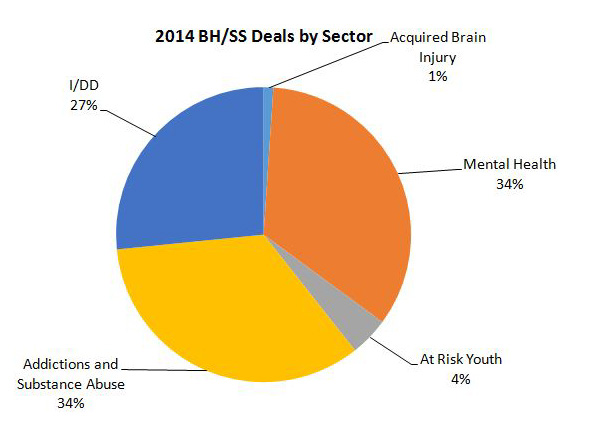
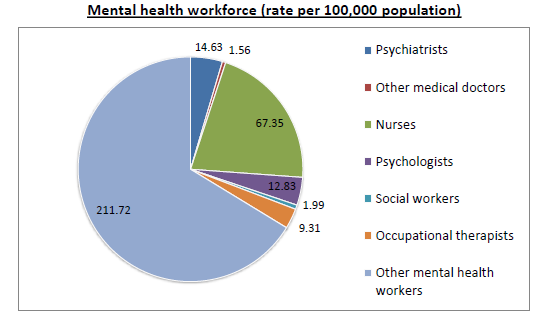
Related Conferences:
1. 29th International Conference on Public Mental Health and Neuroscience July 16-18, 2018 Dubai, UAE
2. 30th International Conference on Psychiatry and Mental Health October 11-12, 2018 Dubai, UAE
3. Aging, Health, Wellness Conference November 05-06, 2018 Abu Dhabi ,UAE
4. 22nd International Conference on Primary Healthcare and Nursing July 19-21, 2018 Dubai, UAE
5. 5th International Conference on Physiotherapy November 27-29, 2017 Dubai, UAE
6. 24th World Nurse Practitioners & Healthcare Congress April 23-25, 2018 Dubai, UAE
7. World Congress on Psychiatry & Psychological Syndromes June 21-23, 2018 London, UK
8. Annual Congress on Mental Health – 2018 July 12th - 13th 2018 Paris, France
9. 7th World Congress on Addictive Disorders & Addiction Therapy July 16-18, 2018 London, UK
10. 29th International Conference on Psychiatry & Mental Health September 14-15, 2018 Singapore
11. 30th World Summit on Psychology, Psychiatry & Psychotherapy September 19-20, 2018 San Diego, California, USA
12. World Congress on Mental Health, Psychiatry and Psychology November 02-03, 2018 Columbus, Ohio, USA
13. Psychiatry in Medical Settings 2018 January 25-27, 2018 Sarasota, Florida,US
14. 4th International Conference on Mental health and Human Resilience April 26-27, 2018 Rome, Italy
15. 3rd International Conference on Spirituality and Psychology (ICSP 2018) Bangkok, Thailand Mar 13-15, 2018
16. 20th International Conference on Addiction Behavior and Rehabilitation (ICABR) Jan 08 - 09, 2018, Singapore
17. 20th International Conference on Psychological Sciences and Addiction Rehabilitation Therapies (ICPSART) Jan 11 - 12, 2018 Hilton Durban, KwaZulu-Natal, South Africa
Major Associations around the Globe
- American Psychiatric Association
- Illinois Psychiatric Society
- World Psychiatric Association
- Kentucky Psychiatric Association
- Psychiatric Associates of Iowa City
- Comprehensive Psychiatric Associates
- Associations First Ltd
Around 24 associations of Psychology & Psychiatry
- Illinois Psychiatric Society
- Comprehensive Psychiatric Association
- Kentucky Psychiatric Association
- Ohio Psychiatric Physicians Association
- Ohio Physicians Association
- Ohio Psychological Association
- Ohio - American Psychiatric Nurses Association
- Psychiatric Associates Of West Michigan
- Psychiatric Associates of Iowa City
- Psychiatric Associates PC
- CHI Health Psychiatric Associates Mercy Council Bluffs
- Psychiatric Associates: Weibel Dana MD
- Iowa Psychiatric Society
- Associates For Psychiatric Services
- Kavalier and Associates
- Genesis Psychology Associates
- Child Psychiatry Associates
- Associates For Behavioral Health
- Madison Psychiatric Associates
- Psychiatric Associates
- Mental Health America of Wi
- Lakeview Psychological Associates
- Wisconsin Psychological Association
- Affiliated Psychiatric Service
Related Societies:
1. World Psychiatry Association
2. American Psychiatric Association
3. European Psychiatric Association
4. American Psychological Association
5. National Alliance on Mental illness
6. Mental health Association in Maryland
7. Society for Mental health Research
8. American Academy of Child and Adolescent Psychiatry
9. Australian Clinical Psychology Association
10. American Society of Addiction Medicine
11. National Institute on Alcohol Abuse and Alcoholism (NIAAA)
12. National Rehabilitation Association (NRA)
13. Research Society on Alcoholism, National Association of Addiction Treatment Providers
14. The International Society of Physical and Rehabilitation Medicine (ISPRM)
15. American Academy of Psychotherapists
16. American Association for Geriatric Psychiatry
17. American Association of Anger Management
18. American Association of Psychotherapists
19. American orthopsychiatry Association
20. Depression Research Association
21. World Federation for Mental Health
Other Related Socities:
Middle East:
Affective Disorder Clinic of Isfahan, Iran | Hafez Psychiatry Clinic | Imam Hossein Medical Center | Institute of Psychiatry, Tehran, Iran | Roozbeh Psychiatric Hospital | Samenolhojaj Charity Support Group for Mental Illnesses | South African Depression and Anxiety group (SADAG) | Taqabal Kuwait | United Colors of Bipolar | Weyak Qatar
USA:
American Academy of Neurology | Movement Disorders Society | Parkinson Society Canada | The International Parkinson and Movement Disorder Society | Canadian Movement Disorders Group | Bachmann-Strauss Dystonia and Parkinson Foundation | Parkinson’s Action Network, American Society of Neuro rehabilitation | Canadian Stroke Consortium | Association of Counselling Psychologists | American Psychological Association | Association for Psychological Science | Brain and Spine Foundation | American Neuropsychiatric Association | Association of Psychology and Psychiatry for Adults and Children | Alzheimer’s Association | American Academy of Sleep Medicine | American Parkinson’s Disease Association | Parkinson’s Disease Foundation | Stroke Association | American Association of Neurological Surgeons | American Society for Stereotactic and Functional Neurosurgery | Neuropathy Association & Nevus Outreach | Brain Aneurysm Foundation and Brain Injury Association of America | Brain Injury Resource Center & Brain Trauma Foundation
Europe:
European Psychiatric Association | Federation of European Neuroscience Societies | European Sleep Research Society | Society for Neuroscience | British Neuroscience Association | Belgian Society for Neuroscience | Brain Research Society of Finland | Croatian Society for Neuroscience | Danish Society for Neuroscience | Dutch Neuro-federation | Georgian Neuroscience Association | Spanish Psychological Association | Swedish Psychological Association| Bulgarian Society of Neurology | Spanish Society of Neurology | British Psychological Association | European Huntington Association| European Neurological Societies | UK Parkinson’s Action Network | European Neurological Society | European Parkinson’s Disease Association | Danish Movement Disorder Society| Italian Society for the study of Parkinson Disease
Asia-Pacific:
Psychiatrists of Association of Nepal | Philippine Psychiatric Association| Portuguese Association of Psychiatry | Romanian Psychiatric Association | Russian Society of Psychiatrists | Neurological Society of India | Movement Disorder Society of Australia | Parkinson’s Disease and Movement Disorders Society of India | Austrian Parkinson’s Disease Society | Movement Disorder Society of Japan
Target Audience:
Directors, Neurologist, Neurosurgeons, Psychiatrists, Head of department, Professors and Students from Academia in the research of Psychiatry.
Academia 50%
Industry 30%
Psychiatrists 10%
Others 10%
Top universities globally working in the field of Psychology & Psychiatry disorders
- University of Cambridge
- UCL
- KCL
- University of Edinburgh
- University of Manchester
- Cardiff University
- University of Vermont
- University of Amsterdam
- Ghent University
- Maastricht University
- University of Melbourne
- University of Queensland
- University of New South Wale
- Middlesex University Dubai
- Zayed University
- United Arab Emirates Universi
- Tel Aviv Universit
- University of Adelaide
- University of Sydney
- Australian National University
- Monash University
- Macquarie University
- University of Hong Kong
- University of British Columbia
- Dalhousie University
- Mount St. Vincent University
- St. Mary's University
Universities which are working in the field of Psychology & Psychiatry
- Bilkent University
- Istanbul sheir University
- Nisantasi University
- Harvard University
- Stanford University
- University California
- Princeton University
- Columbia University
- University Chicago
- Yale University
- Cornell University
- University Pennsylvania
- University Michigan
- University Washington
- Johns Hopkins University
- University Florida
- New York University
- University of California, san Francisco
- Emory University
- Boston University
- Stanford University
Hospitals Associated with Psychology & Psychiatry Globally
- Govt. Psychiatry Hospital
- Ram Psychiatry Hospital
- Helwan Psychiatry Hospital
- Clinique Axium
- Royal Edinburgh Hospital
- St. Patrick's University Hospital
- Metro Psych Facility
- Dela Cerna Hospital
- Aged Psychiatry Services
- The Ashburn Clinic
- PeaceHealth Ketchikan Medical Center
- Royal Alexandra Hosp Psychiatry
- Amager Hospital
- Simurg Psikiyatri Psikoterapi
Hospitals exclusively working on Psychology & Psychiatry
- American Center for Psychiatry and Neurology
- Alexian Center for Mental Health
- Saudi German Hospital
- Association for Individual Development
- Macoupin County Mental Health Center
- Loretto Hospital
- Northwestern Memorial Hospital
- Heritage Behavioral Health Center
- Kenneth Young Center
- Josselyn Center for Mental Health
- Bond County M. H. Service
- Tazwood Mental Health Center
- Lake County Behavioral Health Services
Industries Associated with Psychiatry & Psychology Research
- Eli Lilly
- AstraZeneca
- J&J
- Pfizer
- GSK
- Cephalon
- Abbott Laboratories
- Bristol-Myers Squibb
Products manufactured by the industry related Psychiatric Disorders
- Zyprexa
- Zyprexa Relprevv
- Zyprexa Zydis
Understanding Anxiety at the Brain Circuit Level
According to a report by the world health organization, close to 1 in 10 human beings inside the global are stricken by tension and/or despair. Between 1990 and 2013 the amount has been almost doubled from 416 to 615 million
Corticotrophin freeing hormone (CRH) signaling in dopaminergic neurons of the ventral tegmental location (VTA) can suppress tension. Researchers have elevated on those findings, providing more mechanistic insights into the “anxiolytic” CRH circuit. The scientists had been described how the circuit is going to originate within the extended amygdala, in which neurons of GABAergic population produce CRH. They traced those neurons and saw that they project down to a vicinity of the midbrain known as the VTA, one of the primary dopamine-generating areas of the mind. The VTA is understood to play a key function in praise and dependency, but here the authors give an explanation for how CRH and dopamine have interaction in tension-associated behavior.
The dopaminergic VTA neurons have a projection of CRH-containing extended amygdala goal CRH receptors. As a cease result, this circuit can modify dopaminergic transmission and in turn, emotional behavior. “We recognize that CRH is a chief driver of the stress response and that a hyperactive CRH system is implicated in neuropsychiatric pathologies inclusive of temper and tension issues. but, in this examine, we may want to display that CRH does no longer always act as an aversive, pressure-inducing neuropeptide. In reality, particular CRH circuits are required to maintain a positive affective nation below every day, stress-unfastened conditions.”
“We have been amazed to find that a subset of GABAergic CRH neurons within the prolonged amygdala convey dendritic spines and co-explicit the postsynaptic density protein. These are the characteristics which are normally visible in excitatory, glutamatergic neurons.”
What is psychosis?
Psychosis is an umbrella term; it the way that a man or woman has sensory experiences of things that don't exist and/or beliefs without a basis in reality.
at some point in a psychotic episode, an individual may additionally experience hallucinations and/or delusions. they'll see or listen to things that do not exist.
this could be exceptionally frightening for the character and, occasionally, the symptoms can cause them to lash out and harm themselves or others.
Psychosis is classically related to schizophrenia spectrum problems, and, although there are different signs and symptoms, one of the defining criteria for schizophrenia is the presence of psychosis.
signs and symptoms of psychosis
The traditional signs and signs of psychosis are:
• Hallucinations - listening to, seeing, or feeling things that don't exist
• Delusions - fake ideals, especially based totally on worry or suspicion of factors that aren't actual
• Disorganization - in idea, speech, or behavior
• Catatonia - unresponsiveness
• Difficulty concentrating
relying on the motive, psychosis can become on speedy or slowly. The same is the case in schizophrenia, despite the fact that signs and symptoms may have a slow onset and start with milder psychosis, some human beings can experience a speedy transition returned to psychosis in the event that they forestall taking their medication.
The milder, preliminary signs of psychosis may include:
• feelings of suspicion
• general anxiety
• Distorted perceptions
• despair
• Obsessive wondering
• Sleep problems
Hallucinations can affect any of the senses (sight, sound, smell, flavor, and touch) within the man or woman with psychosis, but in approximately two-thirds of sufferers with schizophrenia, hallucinations are auditory - hearing things and believing them to be real once they do no longer exist.
the following auditory hallucinations are not unusual:
• listening to numerous voices speaking, frequently negatively, about the affected person
• A voice giving a remark on what the patient is doing
• A voice repeating what the affected person is thinking
Advances in Psychiatry Disorder Treatments
Psychiatry, depression and mental health issues are the most prevailing, devastating and life taking problems in most of the people. It might be ca be used due to some day to day changes in lifestyle, peer pressure, work stress, and lot more. According to some scientists it might even be caused due to some changes in the genes and is said that genes also hold the key for the cause of the psychiatric disorders and mental health issues.
Over the past many years the sciences have evolved so well that there are a treatment and cure for almost all the disorders and diseases. Innovative treatments of mental health and psychiatric disorders have emerged in both the private and public sector due to the expansion in research.
Today, the tests analyze genes that show the effectiveness of some drugs will be and whether they are prone to major side effects by looking for genes that influence :
-
How efficiently a particular drug will be chemically broken down after it is taken.
-
How likely the drug will slow “reuptake” of the neurotransmitter serotonin, thereby prolonging stimulation of serotonergic neurons that elevate mood.
-
Whether receptors for serotonin are more or less active. Less active receptors correlate with increased side effects of many Selective Serotonin Reuptake Inhibitors (SSRIs) commonly used as antidepressants.
clinical trials indicate that these tests doubles the effectiveness of drug treatments for depression and reduces the side effects. Psychopharmacogenomic tests have also just come online for drugs that treat anxiety, ADHD, OCD, Schizophrenia, and bipolar disorder. The tests are far from perfect, and currently only address a few neurotransmitter systems and drug metabolic pathways, but progress is rapid.
Advances have been so promising that I predict genetic screening will be a routine first step in prescribing drugs for mental conditions within ten years.
Hence this Psychopharmacogenomic program is available in many medical schools and hospitals and one can avail the under the expert doctors. Hence these advances thus help in the cure of psychiatric diseases. So why suffer in silences when you can cure it.
EPILEPSY
Epilepsy is a neurological Disorder generally characterized as epileptic seizures. These epileptic seizures can vary from a short span of time to a very long period. The actual reason of seizures is unknown but is expected to be caused due to brain injury, brain stroke, brain tumor, brain infection or due to some defect in the brain at the time of birth. Genetic mutations and abnormal neuronal activity also result of epilepsy. Epilepsy is considered to be long-term recur able seizure’s. Epilepsy can be caused by genetic, congenital, or developmental conditions which are more common among younger people, while brain tumors and strokes are mostly seen among older people.
Diagnosis:
The diagnosis of epilepsy is done by the careful observation of the seizures its recurrent behavior and causes of seizure. An electroencephalogram (EEG) is used for the diagnosis of epilepsy which is used to study the abnormal patterns of the brain waves. Neuroimaging (CT scan or MRI) is also used to study the structure of the brain.
Treating of epilepsy:
-
Recognize seizure symptoms
-
Make a seizure response plan
-
Apply first aid to the person undergoing a seizure
-
Protect the person suffering from seizure from the accident
-
Call emergency services if necessary
Managing Epilepsy by medication:
-
Talk to your doctor about how you'll treat your epilepsy
-
Consider Vagus Nerve Stimulation
-
Change your diet
-
Talk to your doctor about surgical options
Epilepsy is usually treated with daily medication once a seizure has occurred, self-management, following special diet, implantation of a neurostimulator, or neurosurgery is really helpful to treat epilepsy.
Why Experience Blues always when you have Rainbow
Bipolar disorder is a chronic and recurrent illness, which represents a major public health problem, and can lead to incomplete functional recovery, social/family disruptions, and cognitive impairment, in addition to increased mortality.
The WHO’s Global Burden of Disease Study ranks bipolar disorder as the sixth cause of years lost to disability.
Every person experiences blues at a point in time, but it depends on us how we overcome those tough times. Without experiencing blues our life tends to be incomplete because it is at this point in time you learn to build yourself strong by overcoming them. Depression is nothing but a mental illness that affects our thoughts, feelings and our behavior. Depression causes sadness, but there is a huge difference between depression and sadness or grief. Fortunately, depression is treatable, but one should have the determination to overcome it.
Developmental model: Duffy et al 2010 showed that individuals at familial risk for Bipolar Disorder develop the illness in a forward sequence of clinical stages - evolving from non-mood disorders followed by minor mood disorders, then major mood disorders, and finally Bipolar Disorder.
Here are the steps to treat depression:
·Diagnostic Evaluation: In this, a physical test and an interview are done with the patient to know the reason for depression because it might be caused due to some health issues such as thyroid or family history or even environmental problems.
·Psychotherapy: Therapy which includes talk as the key to cure the depression is psychotherapy. These days Cognitive Behaviour Therapy is in demand for the treatment of depression.
·Medication: Medicines such as anti-depressants are prescribed to us for the cure of depression. These anti-depressants are not habit forming and can be used for the betterment and cure of depression.
·Electroconvulsive Therapy (ECT): This treatment is in focus for patients with severe depression and Bipolar Disorder. It includes electrical stimulation of the brain.
Out of all these, the best way to overcome depression is self-help and coping. One should be determined enough to cope up with it and to overcome depression. It includes regular exercises, eating healthy, taking a good nap, etc. One should never hesitate to seek mental help; this will be the first step in the curing of depression.
What is CBT?
Cognitive behavior therapy is the therapy which helps in the treatment of Depression but now is used for a varied treatment of mental health. Cognitive behavior therapy commonly known as CBT is a treatment focusing mainly on depression, anxiety disorder, and mental health issues to improve the thought process of a person. Cognitive behavior therapy is a bit like the age-old psychotherapy but due to the advances in research, CBT is more effective.
During a Cognitive behavior therapy, the therapists understand the behavior of the patient. Treatment involves developing more balanced ways to respond to stress. Ideally, these new responses will help minimize or eliminate the troubling behavior or disorder. One can even avail free telephonic therapy over a phone call as these days many therapists are providing the facility of treatment over a call.
Cognitive behavioral therapy is widely used to treat several disorders. These disorders and conditions include:
· antisocial behaviors
· anxiety disorders
· attention deficit hyperactivity disorder
· bipolar disorder
· conduct disorder
· depression
· eating disorders
· general stress
· personality disorders
· phobias
· schizophrenia
· sexual disorders
· sleep disorders
· social skill problems
· substance abuse
One should never ignore these feelings of depression, anxiety, and mental illness because if they worsen they happen to destroy the personality of the person hence making the life of a person miserable. Therefore, it is evident that depression and anxiety disorders are curable if you can take a prior step by consulting a therapist and taking medication.
Just Dispel Out Of It
To be healthy as a whole Mental Wellness plays a role. Mental health plays a major role from childhood to adulthood. It is nothing but a psychological well-being, the process to dispel out the mental illness and to stay healthy both physically and mentally. Mental Health includes realizing one’s own abilities, cope up with the disabilities and stress, being productive and contribute effectively to the society. During the course of time if a person is affected with mental illness it would affect the thinking, mood, and behavior of the person. Some of the factors affecting mental health are:
· Biological factors such as genes
· Life experiences such as abuse
· Mental illness history in the family
One of the major problems of mental illness is not being able to admit the illness and seek for help. It is hidden deep inside the mind, builds and then destroys the person completely. It kills a lot of people outraging suicidal thoughts and self-harm.
Now the Question is why to suffer in silence when you can get rid of it. Just snap out of the Mental Illness.
Sure we can seek help, receive medication and work on changing our mentality, but this takes time and effort. A doctor can lead you into the hazy world of medication but YOU can tell them how you are feeling, YOU tell them that you are experiencing mental issues, not the other way around. People suffer in silence afraid of losing their jobs, their friends, and their dignity. People are being mentally ill one way or the other daily. It’s our ability and determination that would bring us out of this devastating mental illness. Therefore it is a serious illness and should anyone confide in you; please offer your full help and support. After all, everybody needs somebody sometimes.
It is never too late to work being healthiest you.
Bipolar an invisible disease: make it visible
Bipolar disorder is a chronic and recurrent illness, which represents a major public health problem, and can lead to incomplete functional recovery, social/family disruptions, and cognitive impairment, in addition to increased mortality. Bipolar disorder also known as manic depression causes elevated levels of mood and sometimes leads to symptoms of psychosis. It even causes depression that may affect the person’s personal as well as professional life thus causing a disaster. The reasons for this disorder are generally not known but environmental and genetic factors do play a vital role. The environmental factors can be a history of childhood sex abuse and prone to depression. However genetic factors also have a role in bipolar disorder but in very few cases. The elevated levels of mood are generally characterized as mania or hypomania. The symptoms of mania can be as follows:
· Feeling happy for a very long period
· Decreased sleep
· Restlessness
· Easily distracted
· Engaging in risky behavior, such as having impulsive sex, gambling with life savings, or going on big spending sprees
Depression is also considered as one of the symptoms of bipolar disorder. It includes:
· Feeling sad for a longer period
· Being alone and away from the peer group
· Change in appetite
· Suicidal thoughts
The prevention can be done by consulting a proper expert and talking about the issue. It also includes clinical psychotherapy, behavioral therapy, electroconvulsive therapy and medication. One should never hesitate to consult a psychiatrist or therapist. Let’s make this invisible disease a visible one.
The WHO’s Global Burden of Disease Study ranks bipolar disorder as the sixth cause of years lost to disability.
Working memory might be more flexible than previously thought
Defeating the thought that working memory has fixed limits, a different study recommends that these limits change to the task one is performing. You can read this sentence from beginning to end without losing sight of its meaning thanks to your working memory. This system temporarily stores information relevant to any task you are currently doing. However, the more objects you try to keep in working memory at the same time, the worse the quality of each of the resulting memories will be.
For a long time, it has been argued that this phenomenon, known as the established size effect, occurs because the brain devotes a fixed amount of neural resources to working memory. But this explanation strives to consider for some experimental results. It also does not explain why the brain simply will not recruit more resources each time it has more objects to remember. After all, your heart does something similar by beating faster each time your physical activity increases.
They converted this idea into a computational model and tested it on data from nine previously published experiments. In those experiments, human subjects memorized the colors of different numbers of objects. When asked to reproduce these colors as accurately as possible, the quality of their responses was negatively affected by the number of objects in memory.
Working memory seems to be more flexible than previously thought. If that is approved, it is probable to improve working memory and thought by giving rewards or improving the recognized importance of a task.
The Diet association with the Bipolar Disorder
Bipolar Disorder, also known as manic-depressive disorder, is a brain disorder which is characterized by abnormal mood episodes with highs and lows. These episodes can range from very mild to the extreme depending on their intensity and severity.There is no specific diet for bipolar but some foods are strongly recommended to avoid if you have bipolar disorder as they can increase the severity of the mood episodes. Too much Caffeine consumption is one of them as they lead to insomnia (unable to sleep). During depressive episodes, caffeine may boost up your mood but in the long run, they disrupt sleep and cause nervousness and worsen high blood pressure.
In addition to the consumption of caffeine, high-fat meals including red meat, saturated fats, trans fats, and simple carbohydrates are also recommended to avoid. Earlier, the reason was considered as the difficulties and delay in the absorption of bipolar medication due to high-fat meals but does not cause any symptoms of the bipolar disorder. However recent advances in the research have shown that nitrates, chemicals used to cure meats such as beef jerky, salami, hot dogs and other processed meat snacks, may contribute to the manic episode. Mania is characterized by hyperactivity, euphoria, and insomnia.
It was found that people hospitalized for an episode of mania had more than three times the odds of having ever eaten nitrate-cured meats than people without a history of a serious psychiatric disorder. The researchers say that their new study adds to evidence that certain diets and potentially the amounts and types of bacteria in the gut may contribute to mania and other disorders that affect the brain.
During the course of time, numbers of genetic risk factors have been discovered that are associated with bipolar disorder and in other psychiatric conditions. However the evidence of the diet associated with the symptoms has increased the researches on environmental factors, such as diet, that may play a role. This is a great area for the future works as the researches on this association could lead to dietary interventions to help reduce the risk of various manic and depressive episodes in those who have bipolar or other psychiatric disorders.
ME Conferences takes a great honor in announcing the commencement of Bipolar 2018 November 05-06, 2018. Abu Dhabi, UAE. 2nd International Conference on Psychiatry and Psychiatric Disorders May 02-04, 2016 Chicago, Illinois, the USA has received a benevolent response from all over the world. This has been conducted with the aim and the categorical intent of promoting the developments of new perceptions and ideas for exploring the high level of knowledge reached by the scientific community on Mental Health & Psychiatry. The extremely illustrious conference hosted by ME Conferences was marked with the attendance of young and brilliant researchers, clinicians, business delegates and talented student communities.
The conference was organized around the theme of Innovating combats towards Depression & Psychiatry. The event implanted a firm relation of upcoming strategies in the field of Neurology with the scientific community. The conceptual and applicable knowledge shared, will also foster organizational collaborations to nurture scientific accelerations.
This annual conference brought together eminent scientists, Psychiatrists, Psychotherapist Neurologist, Neuroscience researchers, health care professionals, University professors, Neuroscience professionals in which many issues in Psychiatry & Mental Health research were discussed in depth to provide up-to-date information to the world. On the other hand, the meeting provided an opportunity for an open and animated sharing of ideas and experiences.
The conference witnessed an amalgamation of peerless speakers, who enlightened the crowd with their enviable research knowledge and on various alluring topics related to the field of Neuroscience. The eminent personalities at the conference were Guy Fontaine, University Pierre et Marie Curie, France. Gregory Brown. University of Nevada School of Medicine, USA Elizabeth Reyes-Fournier, Keiser University, USA. Colin Pritchard Bournemouth University, UK.
We once again thank you all for the enormous exquisite response. This inspires us to continue organizing events and conferences for furthering the Neuroscience Research. ME Conferences, therefore, is glad to announce its Bipolar 2018 November 8-10, 2018. Abu Dhabi, UAE
Mark your calendars for the upcoming meeting; we are hoping to see you soon!
Let us meet again at the International Conference on Bipolar Disorder: Depression and Psychiatry in Abu Dhabi, UAE
TOP UNIVERSITIES IN USA
-
University of California--Los Angeles
-
Duke University
-
University of California
-
University of Pittsburgh
-
University of Michigan
-
Johns Hopkins University
-
New York University
-
Massachusetts Institute of Technology
-
University of Minnesota--Twin Cities
-
University of North Carolina--Chapel Hill
-
Washington University in St. Louis
-
University of California--Berkeley
-
University of Washington
-
University of Chicago
-
Cornell University
-
Vanderbilt University
-
University of California--San Francisco
-
University of California--Davis
-
Northwestern University
-
Princeton University
-
Emory University
-
University of Wisconsin—Madison
-
Ohio State University--Columbus
-
Boston University
-
Pennsylvania State University--University Park
-
University of Texas--Austin
-
University of Virginia
-
University of Rochester
-
University of California--Irvine
-
Brown University
-
University of Southern California
-
Michigan State University
-
University of Iowa
-
University of Maryland--College Park
-
Arizona State University--Tempe
-
Stony Brook University--SUNY
-
Indiana University--Bloomington
-
Mount Sinai School of Medicine
-
University of Miami
-
Florida State University
-
University of Arizona
-
University of Colorado--Boulder
-
Carnegie Mellon University
-
University of Illinois--Chicago
-
Dartmouth College
-
University of Missouri
-
University of Oregon
-
University of Florida
-
Purdue University
-
University of California
-
University of Connecticut
-
University of Texas Southwestern Medical Center--Dallas
-
The State University of New Jersey
-
Texas A&M University--College Station
-
Yeshiva University
-
Baylor College of Medicine
-
University of Maryland--Baltimore
-
University of Utah
-
Tufts University
-
University of Cincinnati
-
University of South Florida
-
University of New Mexico
-
University of Kansas
-
Temple University
-
Case Western Reserve University
-
University of California--Riverside
-
University of Georgia
-
University of Notre Dame
-
University of Kentucky
-
Medical University of South Carolina
TOP UNIVERSITIES IN EUROPE
-
Karolinska Institute
-
University of Amsterdam
-
VU University Amsterdam
-
Catholic University of Leuven
-
University of Groningen
-
University of Munich
-
Maastricht University
-
Radboud University Nijmegen
-
Aarhus University
-
Ghent University
-
University of Zurich
-
University of Barcelona
-
Humboldt-Universität zu Berlin
-
Technical University of Dresden
-
Cardiff University
-
University of Copenhagen
-
Heidelberg University
-
University of Manchester
-
University of Edinburgh
-
Freie Universität Berlin
-
Leiden University
-
University of Bristol
-
University of Basel
-
Erasmus University Rotterdam
-
University of Geneva
-
Tilburg University
-
University of Sussex
-
Birkbeck University London
-
University of Oslo
-
Eberhard Karls University, Tübingen
-
Imperial College London
-
University of Exeter
-
Paris Descartes University-Paris V
-
University of Bern
-
University of York
-
University of Birmingham
-
University of Southampton
-
University of Bonn
-
Newcastle University
-
University of Cologne
-
Charite - Medical University of Berlin
-
University of Warwick
-
Sapienza University of Rome
-
University of Helsinki
-
Autonomous University of Barcelona
-
University of Göttingen
-
University of Nottingham
-
University of Glasgow
-
University of Würzburg
-
University of Padua
-
University of Leipzig
-
University Catholique of Louvain
-
Technical University of Munich
-
Philipps University of Marburg
-
University of Konstanz
-
University of Leicester
-
University of Freiburg
-
Trinity College Dublin
-
University of Gothenburg
-
University of Kent
-
United Kingdom Canterbury, Kent
-
University of Milan - Bicocca
-
Uppsala University
-
University of Turku
-
University of Hamburg
-
London School of Economics and Political Science
-
University of Bergen
-
University of Leeds
-
University of Sheffield
-
Medical University of Vienna
-
University of Bologna
-
University of Münster
-
Friedrich Schiller University of Jena
-
Linköping University
-
Pierre and Marie Curie University
-
Lund University
-
Durham University
-
University of Lausanne
-
Johann Wolfgang Goethe University Frankfurt am Main
-
Stockholm University
-
University of Valencia
TOP UNIVERSITIES IN MIDDLE EAST
- Mohammed bin Rashid University of Medicine and Health Sciences
-
Cairo University
-
King Abdulaziz University
-
American University of Beirut
-
Qena Faculty of Medicine
-
Kasr El-Aini Faculty of Medicine, Cairo University
-
Ain Shams University Faculty of Medicine
-
Alexandria Faculty of Medicine
-
Mansoura Faculty of Medicine
-
Mansoura Manchester Medical Programme
-
Faculty of Medicine Zagazig University
-
Benha Faculty of Medicine, Benha University
-
Fayoum Faculty of Medicine
-
Assiut Faculty of Medicine
-
Suez Canal Faculty of Medicine
-
Minia Medical School
-
Monofia Faculty of Medicine
-
Sohag Faculty of Medicine
-
Tanta Faculty of Medicine
-
Alfaisal University
-
Ain Shams University
-
Mansoura University
-
Université de Tunis El Manar
-
King Saud bin Abdulaziz University for Health Sciences
-
United Arab Emirates University
-
Kuwait University
-
Assiut University
-
Université de Monastir
-
Université de Sfax
-
Sultan Qaboos University
-
Jordan University of Science & Technology
-
Minia University
-
King Khalid University
-
University of Tanta
-
Al Azhar University
-
Zagazig University
-
University of Balamand
-
University of Jordan
-
Menoufia University
-
Université du Sousse
-
University of Khartoum
-
Université de la Manouba
-
Université Saint Joseph de Beyrouth
-
University of Dammam
-
King Faisal University
-
Université Libanaise
-
Qassim University
-
Beni-Suef University
-
Université Mohammed V Agdal
-
Sohag University
-
Helwan University
TOP UNIVERSITIES IN ASIA
-
Tel Aviv University
-
Hebrew University of Jerusalem
-
Chinese University Hong Kong
-
Peking University
-
Seoul National University
-
Beijing Normal University
-
Nanyang Technological University
-
National University of Singapore
-
Tsinghua University
-
Nanyang Technological University
-
Chinese University of Hongkong
-
University of Tokyo
-
Seoul National University
-
Kyoto University
-
Sungkyunkwan University
-
Fudan University
-
Zheijiang University
-
Shanghai Jiao Tong University
-
Yonsei University
-
Korea University
-
Tel Aviv University
-
National Taiwan University
-
Hebrew University of Jerusalem
-
Osaka University
-
Tohoku University
-
Koc University
-
Sabancı University
-
Nagoya University
-
Sun Yat-sen University
-
University of Malaya
-
University of Macau
-
Kyushu University
-
Chung-Ang University
-
Bar-Ilan University
-
Qatar University
-
Bilkent University
-
Hokkaido University
-
Hong Kong Baptist University
-
National Cheng Kung University
-
University of Tsukuba
-
Tianjin University
-
Ewha Womans University
-
Bogazici University
-
United Arab Emirates University
-
Soochow University
-
National Taiwan Normal University
-
American University of Beirut
-
Central China Normal University
-
Quaid-i-azam University
-
Xiamen University
-
Indian Institute of Technology Kanpur
-
Renmin University of China
-
East China Normal University
-
Universiti Tunku Abdul Rahman
-
University of Haifa
Conference Highlights
- Bipolar disorder
- Psychiatry
- Mental Health
- Psychiatry & Mental Health Nursing
- Schizophrenia
- Addiction & Addictive Disorders
- Depression & Anxiety Disorders
- Mental Health and Substance Abuse
- Psychiatry Nursing
- Cognitive Behavioral Therapy
- Advances in psychiatric disorder treatment
- Management and treatment of Mental Health issues
- Regulation & Case reports
- Epilepsy
- Clinical Psychology
- Depression
- Anxiety Disorder
- Psychology
- Neuropsychiatry
- Eating Disorder
- Pediatric Psychology
To share your views and research, please click here to register for the Conference.
To Collaborate Scientific Professionals around the World
| Conference Date | October 21-22, 2019 | ||
| Sponsors & Exhibitors |
|
||
| Speaker Opportunity Closed | Day 1 | Day 2 | |
| Poster Opportunity Closed | Click Here to View | ||
Useful Links
Special Issues
All accepted abstracts will be published in respective Our International Journals.
Abstracts will be provided with Digital Object Identifier by




